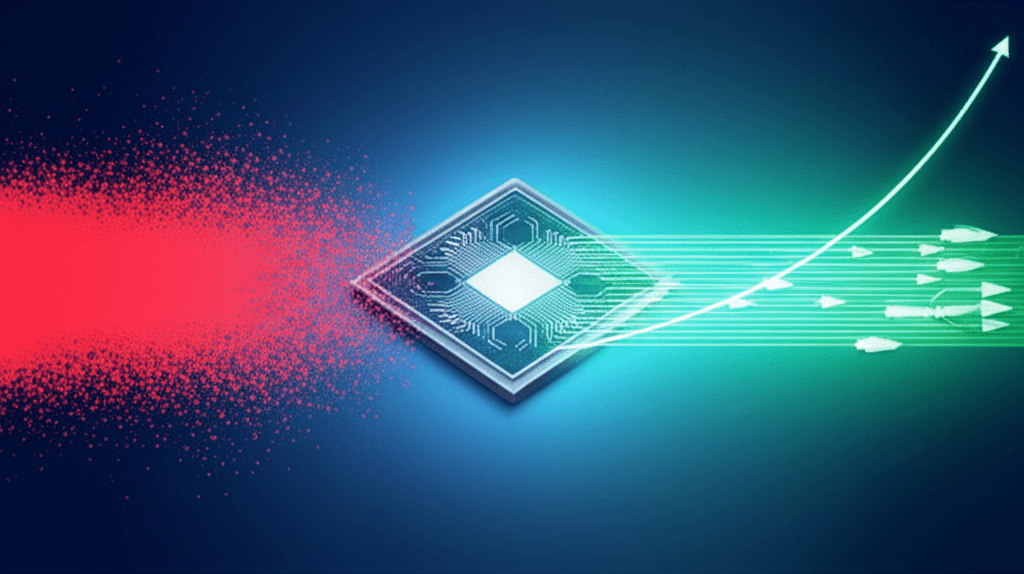US Reverses Ban: Nvidia Resumes Critical AI Chip Exports to China
After intense lobbying and billions in losses, Washington reopens the door for Nvidia's AI chips in China.
July 15, 2025

In a significant turn of events for the global technology landscape, Nvidia has been given the green light to resume exporting its H20 artificial intelligence accelerator chips to China. This marks a stark reversal in U.S. trade policy, which had for months restricted the sale of these crucial components, creating ripples across the semiconductor industry and escalating tech tensions between the two world powers. The policy shift, confirmed by Nvidia in a company blog post, follows assurances from the U.S. government that export licenses for the H20 chip will be granted.[1][2][3] The reversal is seen as a major victory for the chipmaker and its CEO, Jensen Huang, who had been a vocal critic of the export bans.[4][1]
The H20 chip was specifically developed by Nvidia as a less powerful alternative to its top-tier AI processors, such as the H100 and H200, to comply with earlier U.S. export controls aimed at slowing Beijing's military and technological advancement.[4][5][6] However, in a surprising move in April, the Trump administration tightened these restrictions, effectively blocking sales of the H20 to China without a specific license.[4][1][5] This decision had immediate and significant financial repercussions for Nvidia, which reported it had to take a multibillion-dollar write-off on unsold inventory and stood to lose a substantial portion of its revenue from the Chinese market.[7][8][5]
The abrupt policy reversal appears to be part of a broader, albeit opaque, de-escalation in trade hostilities between Washington and Beijing.[1] Recent weeks have seen a thawing of relations, with the U.S. agreeing to lift some export controls, including for chip design software, in exchange for China allowing more sales of essential rare-earth minerals.[4][1] This development came after a period of intense lobbying by technology leaders, including Huang, who argued that the restrictions were not only damaging to American companies but also ultimately ineffective, encouraging China to accelerate its own domestic chip development.[8][3][9] Huang reportedly met with former President Donald Trump and other U.S. policymakers to press his case, emphasizing the importance of American companies competing in the dynamic Chinese market.[10][3][6]
The resumption of H20 exports is poised to have a significant impact on the AI industry, both in China and globally. Chinese technology giants like Alibaba, ByteDance, and Tencent, which are heavily reliant on Nvidia's hardware to train and run their large-scale AI models, are expected to be major customers.[7][1][11] These companies had reportedly been stockpiling the chips in anticipation of further restrictions.[5][12] The availability of the H20 will provide a crucial boost to their AI development efforts, though it remains a less powerful option compared to Nvidia's most advanced products and rising domestic alternatives from companies like Huawei.[5][13] The H20, built on the Hopper architecture, features 96GB of HBM3 memory and delivers up to 296 TFLOPS of compute performance, placing it below the H100 in terms of raw power but still making it a highly capable AI accelerator.[14][15]
Market reaction to the news was immediate and positive, with Nvidia's stock surging in pre-market trading.[7][16] The decision is seen as restoring a significant revenue stream for the company, which had been facing the prospect of being locked out of a market that historically accounted for a notable portion of its sales.[7][5] The move also boosted the stock prices of other players in the semiconductor ecosystem, including AMD, reflecting renewed investor confidence in the AI chip trade.[7] Alongside the H20 resumption, Nvidia also announced a new, fully compliant chip for the Chinese market, the RTX PRO, which is designed for industrial applications like smart factories and logistics and falls below the technical thresholds requiring a license.[1][17][15]
This policy U-turn underscores the delicate and complex interplay of national security concerns, economic interests, and technological competition that defines the U.S.-China relationship. While the U.S. government has expressed a desire to limit China's military AI capabilities, the reality of a deeply interconnected global supply chain and the economic consequences of broad restrictions appear to have prompted a strategic recalibration.[10][18] The reversal suggests a shift towards a more targeted approach to export controls, one that seeks to balance security objectives with the economic imperative of allowing American companies to compete globally. However, the situation remains fluid, and the long-term trajectory of U.S.-China tech trade is far from certain, leaving the industry to navigate a landscape of persistent geopolitical volatility.[5][3]
Sources
[2]
[3]
[6]
[12]
[13]
[14]
[15]
[16]
[17]
[18]